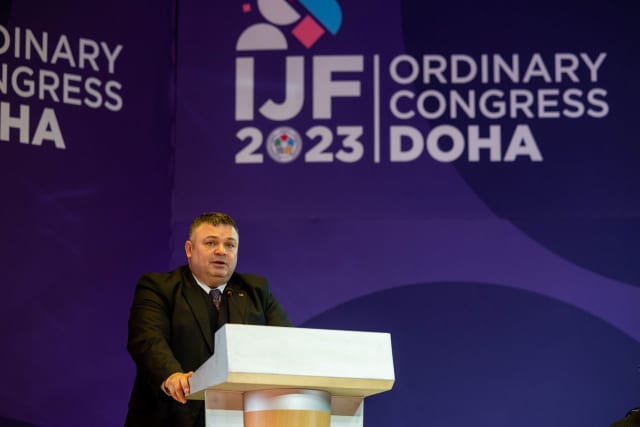After having presented an in-depth report about the last two year period for the IIJF Refereeing Commission, Mr Lascau explained that, "Judo is an active and dynamic Olympic sport withstanding changes and developments. After the last Olympic cycle, we reviewed the refereeing rules and twelve points have been changed or adapted. The whole process was supported with competition videos. It was presented professionally and implemented during the WJT events."
The work of the commission is articulated around regular referee training sessions, refereeing seminars and video analysis. Mr Lascau explained, "To have clear and fair decisions, the IJF Refereeing Commission needs good quality videos, recorded by at least 2 cameras. We can review all actions at normal speed and in slow motion, showing the action details, landing pictures and other important elements."
The part of the presentation that attracted the most attention was the statistical analysis. Thus 5,898 contests were analysed covering 15 World Judo Tour events. The results show that 78.4% of the contests were concluded with a positive score (ippon, waza-ari-awasete, waza-ari), the other contests being won by penalties (three shido or hansoku-make) or by fusen-gachi or kiken-gachi.
An interesting feature is the average time of the contests over that whole period: 3 minutes and 25 seconds. Most contests end before golden score.
Talking about golden score, 993 of those bouts were won with a positive score. The shortest one was 3 seconds long and the longest was 10:59 with an average duration of 1 minute and 46 seconds.
Last but not least, the average number of penalties given during all the 5,898 contests analysed is 1.8 penalties per contest.
As Florin Daniel Lascau underlined, "Sometimes we have the feeling that more penalties are given or that many contests are going to golden score but the mathematics don't lie and it shows that judo is a dynamic sport, for which the goal remains to score ippon. The athletes and their coaches understand that."

